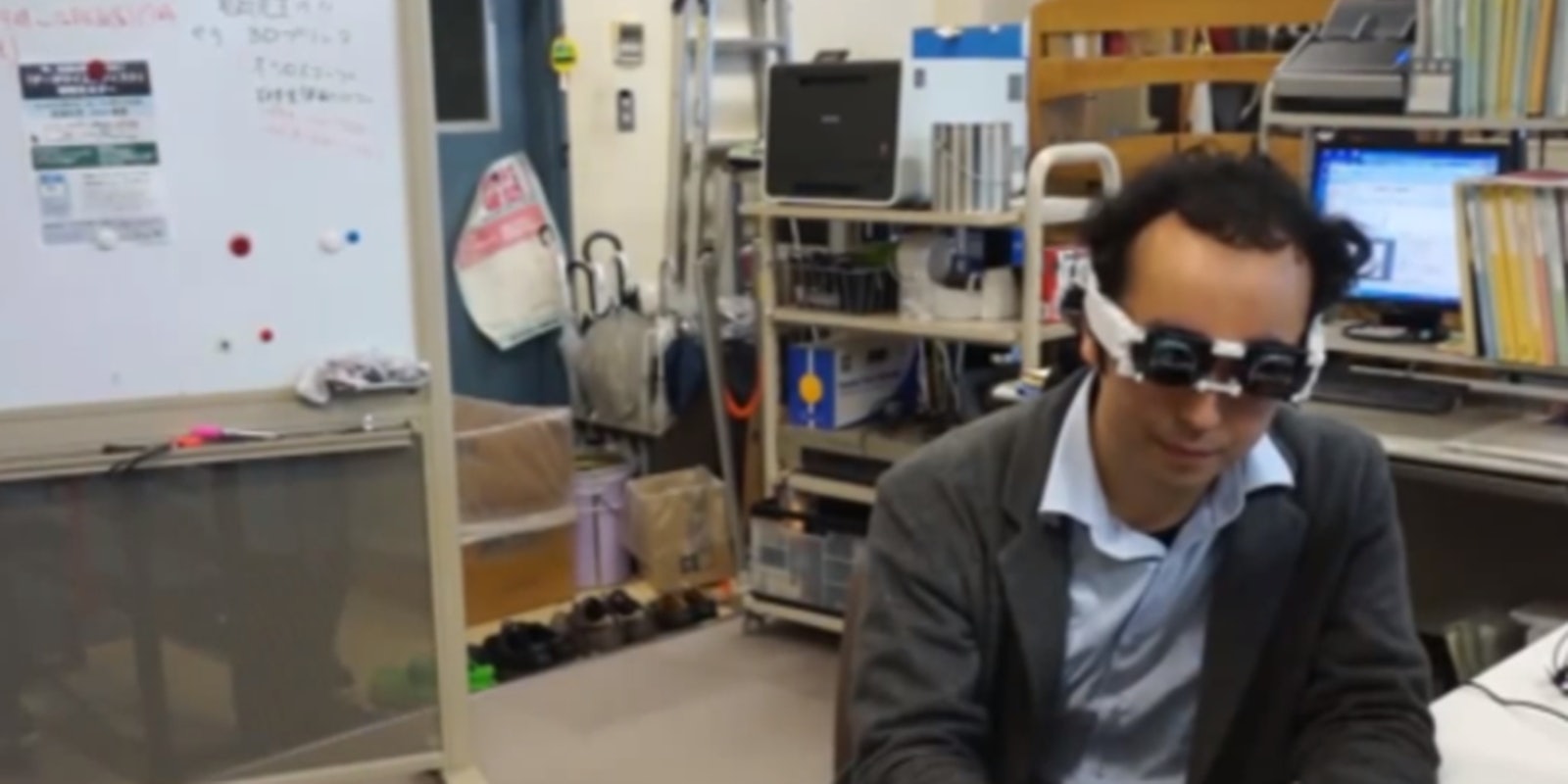While we’ve all been discussing the cultural pros and cons of Google Glass, Japan has once again blown past us in terms of futuristic alternatives: They’ve created cyborg glasses that express emotions for you.
Why would someone need goggles that hide our real emotions in favor of terrifying robot eyes? Creator Hirotaka Osawa, a professor at Japan’s University of Tsukuba, says this device, called AgencyGlass, is more about emotional labor in the workplace. This tongue-in-cheek video explains that the workplace requires physical labor and brainwork, but can we improve emotional and social interaction?
AgencyGlass allows for a normal field of vision, and the external camera “captures” the faces of people as they walk by and lets your robot eyes gaze at them, even if you’re looking down at your phone. It also allows for “secret break time,” which is ostensibly sleeping with your eyes open. Basically, your robot eyes are aware at all times, even if your normal old human eyes aren’t. This will be a hit in high schools.
This idea has, of course, been a bit controversial. Is it right to deceive people? Osawa countered that the glasses are visible, so it’s not exactly deception. Rather, he says the device’s “emotional support reduces a user’s cognitive load for social manners.” So people around the wearer feel engaged at all times, and we don’t have to force interaction. It’s sort of like SociBot, the emotion-reading bot that knows how you feel, and recognizes your face.
Is this a good thing? It could certainly improve customer service interactions in certain professions that depend on emotional labor, if you can get used to the idea of cyborg eyes watching you. (Clap, clap.)
It looks like one day we might be staring into a whole robot face: Osawa is also working on a mouth, which will mimic a smile.
Screengrab via IEEE Spectrum/YouTube


